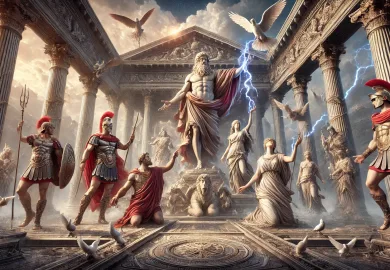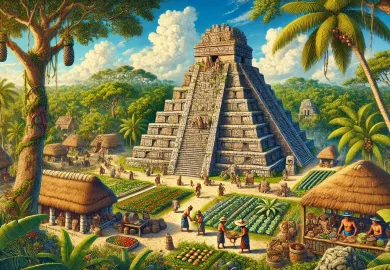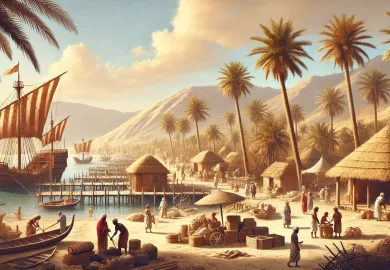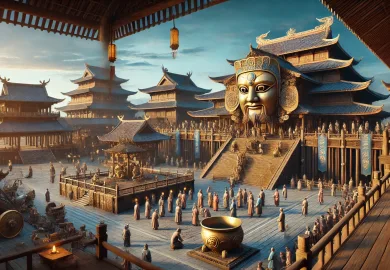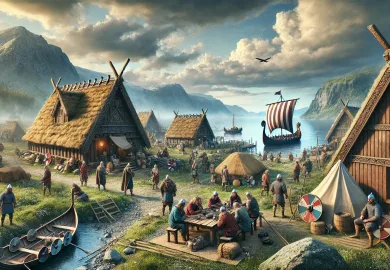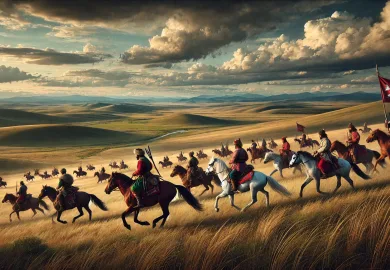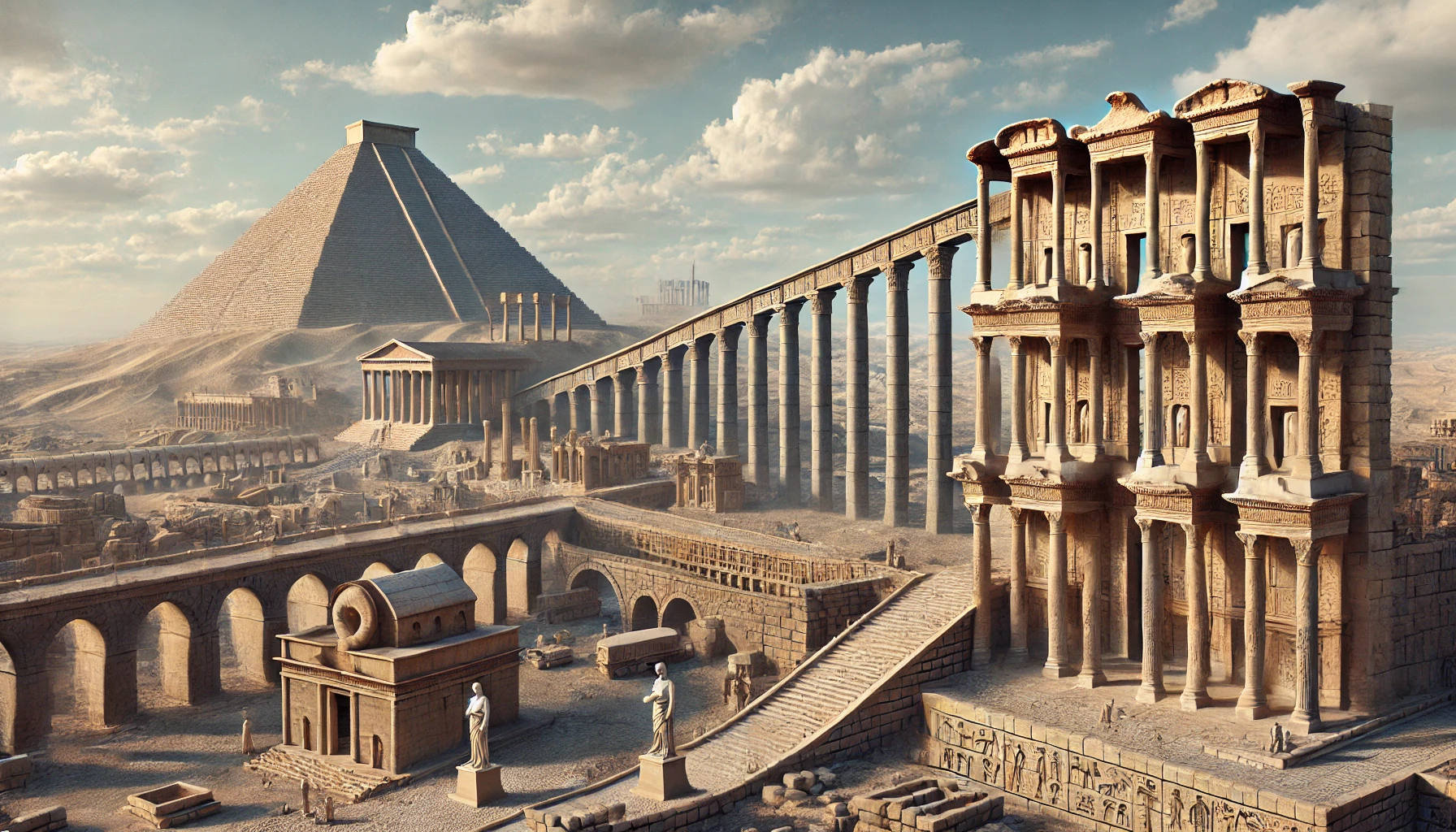
Disclaimer: This content was generated using AI. While I strive for accuracy, I encourage readers to verify important information. I use AI-generated content to increase efficiencies and to provide certain insights, but it may not reflect human expertise or opinions.
The world we live in today is the culmination of thousands of years of human history, shaped by ancient civilizations that laid the foundation for modern culture, politics, science, and architecture. From the intricate governance systems of the Romans to the spiritual philosophies of the Egyptians, these ancient societies continue to resonate in our lives. In this article, we will explore some of the most groundbreaking ancient civilizations that influence us today, highlighting their enduring legacy.
The Timeless Wisdom of Ancient Egypt
Ancient Egypt is undoubtedly one of the most recognizable civilizations in history. Known for its towering pyramids, elaborate burial practices, and mystical deities, Egypt was much more than just a civilization obsessed with the afterlife. It was a beacon of knowledge, art, and culture that still resonates today.
For one, Ancient Egyptian architecture remains an inspiration in the modern world. The pyramids, particularly the Great Pyramid of Giza, continue to baffle and inspire engineers and architects alike. The geometric precision and sheer scale of these structures demonstrate a mastery of mathematics and engineering that is still studied today. In fact, many modern buildings take inspiration from Egyptian designs, incorporating elements like obelisks and columns.
Beyond architecture, Ancient Egyptian art and religion have also left a lasting mark on modern culture. The concept of an afterlife, detailed hieroglyphics, and the pantheon of gods have influenced everything from modern storytelling to spiritual beliefs. Symbols like the ankh and the eye of Horus are still used today in fashion and jewelry as representations of life, protection, and eternity.
Finally, the legacy of Ancient Egyptian medicine has made a substantial impact on modern science. The Egyptians were pioneers in medical practices, employing surgical techniques and medicinal herbs that paved the way for contemporary medical research. Concepts such as wound treatment, dental care, and even basic surgeries were practiced in Ancient Egypt, influencing later civilizations and shaping our modern medical practices.
The Roman Empire: A Model of Governance and Law
The Roman Empire was one of the most powerful and enduring civilizations in human history. Its influence extends far beyond the borders of ancient Rome, with its legal, political, and infrastructural systems forming the backbone of Western civilization.
The Roman Empire is most famous for its groundbreaking contributions to governance and law. Roman law laid the groundwork for many legal systems worldwide, including the United States Constitution. Concepts such as “innocent until proven guilty,” civil rights, and property rights all stem from Roman jurisprudence. The use of legal codification, where laws were written down and made accessible to the public, is another Roman innovation that remains integral to modern legal systems.
In addition to law, the Roman system of governance is a critical precursor to modern democratic practices. The Roman Republic, in particular, employed a complex system of checks and balances that influenced the formation of many modern governments. The Senate, consuls, and popular assemblies created a layered governance structure that many democracies, including the U.S. and European nations, have emulated.
The Roman Empire’s infrastructure—particularly its roads, aqueducts, and urban planning—remains legendary. Roman roads connected distant regions of the empire, facilitating trade, communication, and military movement. Their aqueducts brought fresh water to cities, showcasing Roman engineering prowess. Many modern cities still follow Roman blueprints when it comes to infrastructure planning.
Ancient Greece: The Cradle of Western Philosophy and Science
When we think of Ancient Greece, images of grandiose temples, athletic games, and philosophical debate come to mind. This civilization is often hailed as the “Cradle of Western Civilization,” and with good reason. The Greeks made pioneering contributions to philosophy, science, and democracy, shaping how we think, govern, and explore the world.
Greek philosophers such as Socrates, Plato, and Aristotle laid the foundation for Western philosophical thought. Their teachings, which explored ethics, politics, metaphysics, and logic, are still studied in universities today. Socrates’ method of questioning, known as the Socratic Method, is employed in modern education as a way to foster critical thinking. Aristotle’s works on biology, physics, and metaphysics influenced later scientific thought, and his ideas continue to form the basis of many scientific principles.
In addition to philosophy, Ancient Greece’s scientific achievements were groundbreaking. The Greeks made significant advancements in mathematics, astronomy, and medicine. The mathematician Pythagoras laid the groundwork for geometry, while Archimedes is famous for his contributions to physics and engineering. These early scientific achievements paved the way for the Scientific Revolution centuries later.
Greek innovations in democracy and governance have left a lasting legacy. The city-state of Athens, in particular, was known for its early form of direct democracy, where citizens had a say in government affairs. This idea of civic participation influenced the development of modern democratic systems across the world, particularly in the Western hemisphere.
Mesopotamia: The Birthplace of Writing and Urbanization
Often referred to as the “Cradle of Civilization,” Mesopotamia is one of the earliest known civilizations, and its contributions have had a profound impact on the course of human history. Situated between the Tigris and Euphrates rivers in what is modern-day Iraq, Mesopotamia was a hub of innovation in agriculture, writing, and urban development.
One of the most important contributions of Mesopotamia is the invention of writing. The Sumerians, one of the earliest groups to inhabit Mesopotamia, developed cuneiform script, which is considered the first known system of writing. This invention allowed for the recording of laws, trade transactions, and religious texts, providing a means for the preservation and dissemination of knowledge. The development of writing systems directly influenced the rise of literacy and education in later civilizations.
In addition to writing, urbanization began in Mesopotamia. Cities like Uruk and Babylon became centers of trade, governance, and culture, laying the groundwork for modern urban life. The concept of zoning, property rights, and civic planning all trace their origins to the urban centers of Mesopotamia.
Moreover, Mesopotamia’s innovations in agriculture—including the use of irrigation systems and crop rotation—allowed societies to sustain larger populations and thrive in otherwise arid environments. These agricultural techniques influenced future civilizations and contributed to the Agricultural Revolution, which changed the course of human history.
Conclusion
The influence of these ancient civilizations on the modern world is undeniable. From the architecture of Ancient Egypt to the legal and political systems of Rome, from the philosophical and scientific achievements of Greece to the urbanization and writing of Mesopotamia, these ancient societies laid the groundwork for modern culture, governance, and science. Today, we continue to study and draw inspiration from their groundbreaking innovations, reminding us of the timeless wisdom and ingenuity of our ancestors.

